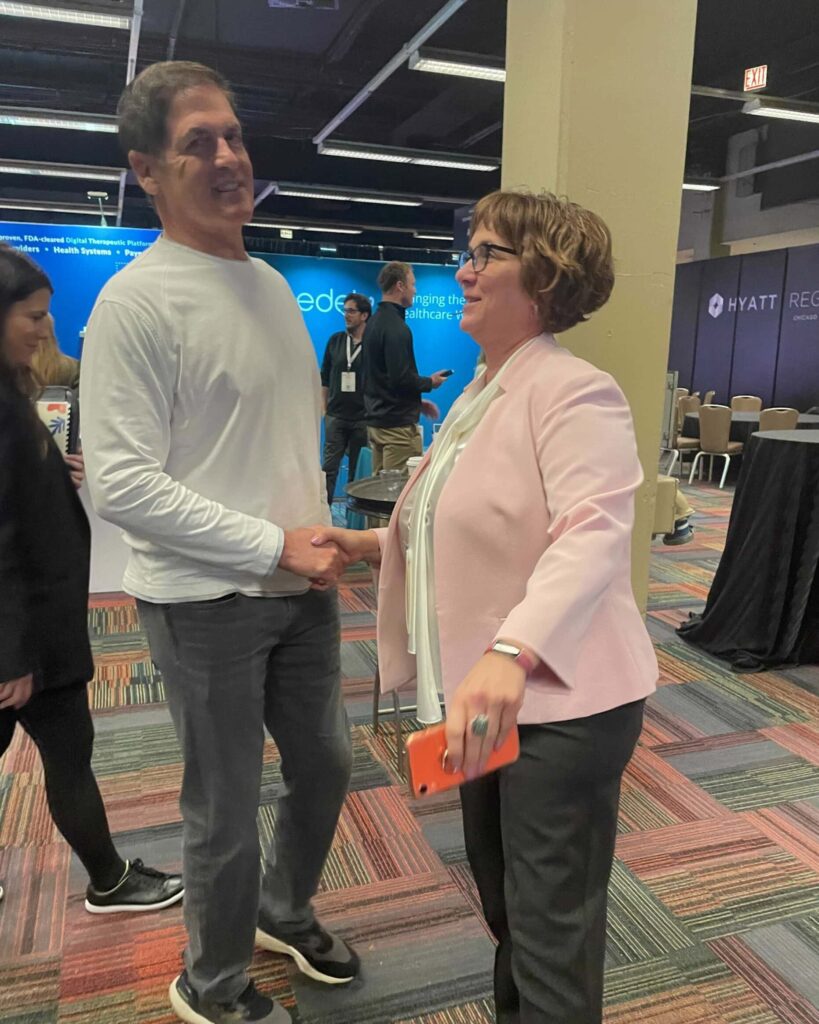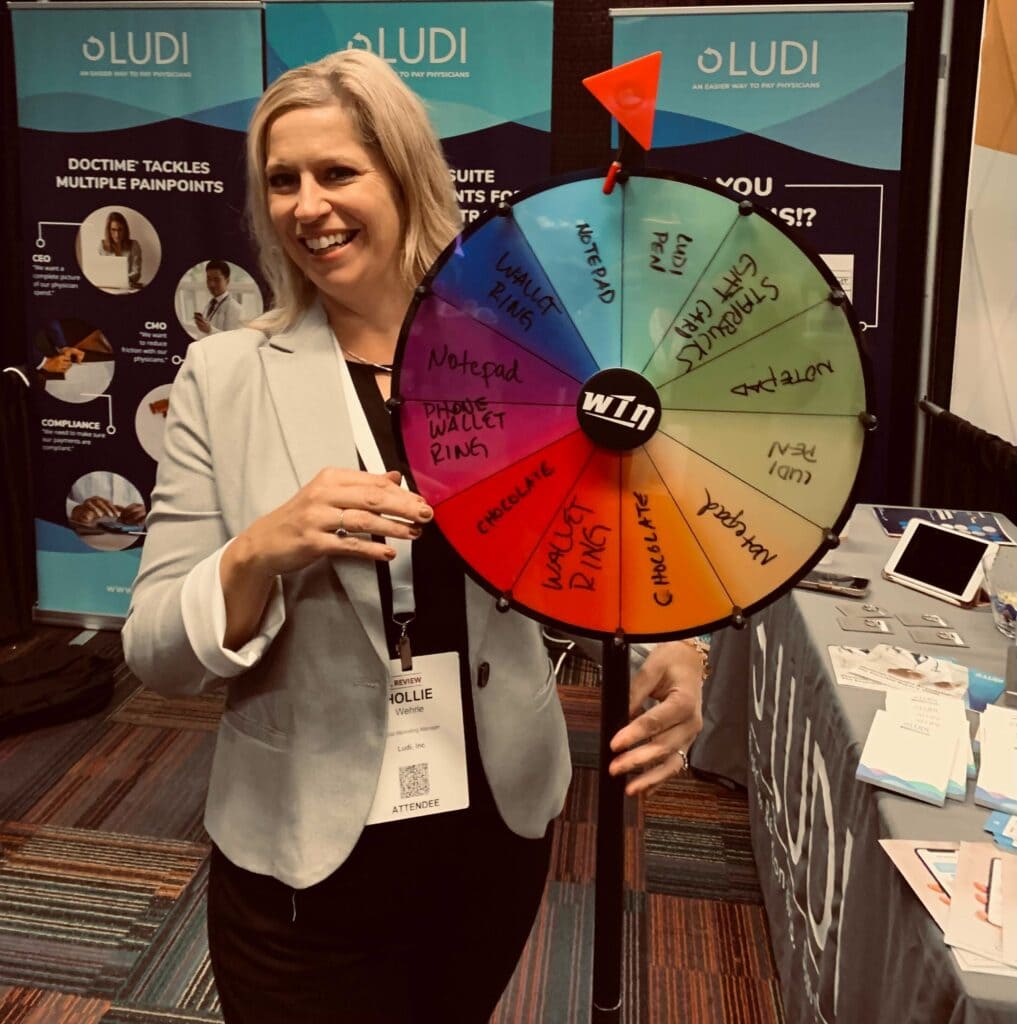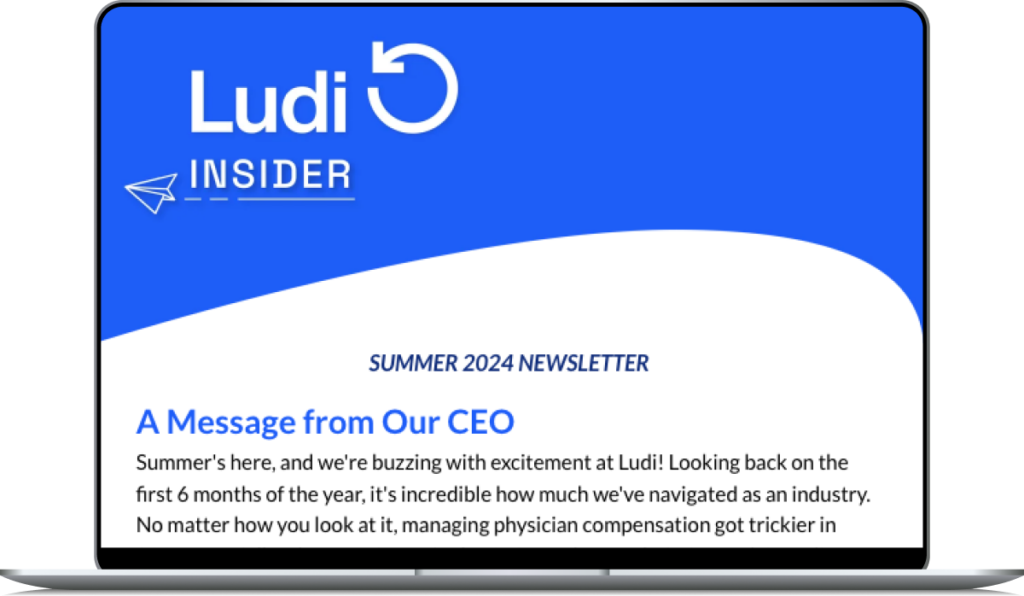Earlier this month, some of my colleagues and I attended the Becker’s 13th Annual Meeting in Chicago. As always, Becker’s puts on a top-notch conference, and this year was no different. In fact, the show was filled with substantive panels of hospital and payer executives, inspiring keynotes (including celebrities like Magic Johnson and Mark Cuban, both of whom I had a chance to meet!) and a massive exhibit hall filled with companies (including my own Ludi Team) offering the latest in tech innovation and consulting options for hospitals.
It was clear hospitals are still fighting to move past the devastating impact of Covid.
Gail Peace, Founder, Ludi Share on X
Several people brought up the “financial holes their organizations are digging out of” and the dire labor shortages they still face. There’s a perpetual worry that physician and nurse shortages will only get worse before they get better, so I heard several hospital executives emphasize the need for health care organizations to make their internal teams a priority – even over patients, one executive said. Why? Because if your team is happy, that will trickle down to everyone else, he noted.
But there was much optimism to be had at Becker’s this year, too. While the financial concern is real, panelists also discussed their hyperfocus on strategy and commitment to their patient communities.
Here are 10 themes I took note of at this year’s conference – many of these themes I think we’ll see play out in very interesting ways over the next year (and beyond):
- OP volumes seem to be back up to pre-Covid levels in many parts of the country. That’s a huge win for hospitals toward overcoming some of the harsh financial realities of the past few years. It’s an uphill battle, but it’s moving in the right direction.
- Caregivers just want to hear “thank you.” They’re still burned out, as are many of our frontline workers in health care (especially nurses and doctors).
- Although the financial constraints persist (particularly for rural hospitals), most systems are still trying to push forward on their strategic visions, as budgets allow. That’s another good sign that hospitals are doing their best to move forward in a tricky economic environment. Rural hospitals, according to one executive, need to “focus on their top line right now – nothing else matters.”
- There is a healthy amount of interest about new entrants in health care (such as Amazon, Apple, Google, etc.) and how they might disrupt the current system. Some have been more successful than others, but it’s important for hospitals to stay on top of these new entrants and the way they are (or are not) connecting with consumers.
- Value-based care is a buzzword. Here is what it really is: Aligning care givers with reducing the cost of care for better quality of care.
- Optum seems to be leading the industry in having the most physicians set up on value-based compensation models.
- Transparency is also a buzzword, yet some panelists asked: Is anything REALLY transparent in health care?
- Telehealth is here to stay. Even though Covid protections and state licensure were relaxed, there is a strong path forward for this part of the industry.
- Hospitals want fewer partnerships and deeper relationships with the vendors/partners they work with. Those they do work with, they want to see a quick ROI.
- When it comes to new software, hospitals don’t necessarily have the resources to stand up complex technology. It has to be simple.
The latter two themes on my list resonated with me. Given what we do at my company Ludi – we automate the payment process for physicians – I know firsthand how important the user experience is in tech.
Physicians (and other health care workers) don’t have the time nor the energy to deal with clunky user design. It has to be easy and correlate with the day-to-day workflows of your target customer.
Honestly, that’s how I came up with Ludi’s DocTime® solution. Even back then, when it came to tracking their time/work at hospitals, providers were being weighed down by overly cumbersome admin processes. Something had to change. That’s the mentality I think any hospital partnership needs to have right from the start these days. That is, if you’re not solving an immediate issue and if you can’t solve it with a solution that is easy to stand up, use and grow with over time, it won’t work in the long run. Plain and simple.
I was glad to hear this theme addressed at the Becker’s show this year a few times. It’s a winning strategy, even after all these years.




